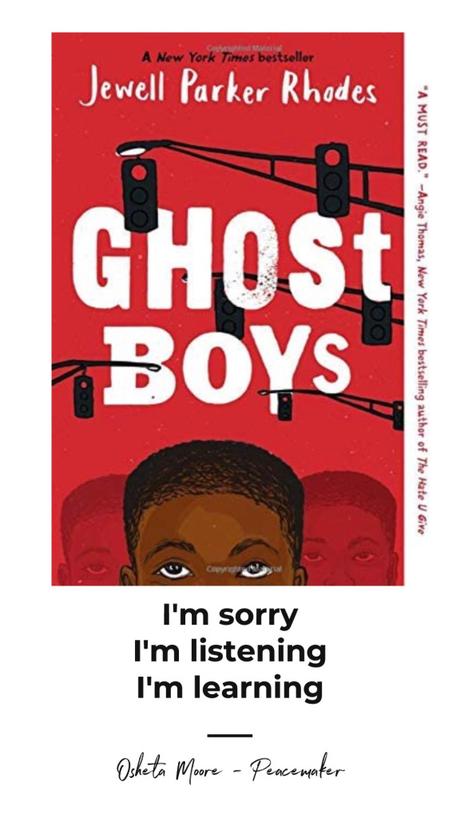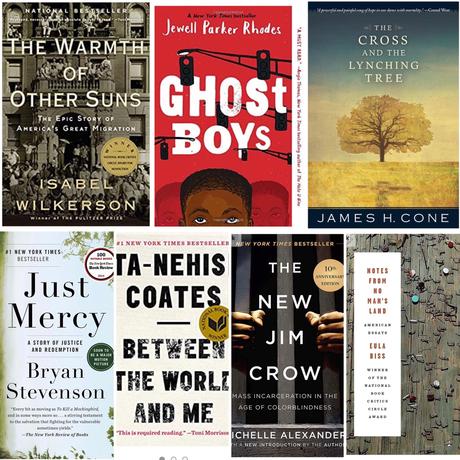
Eight years ago my oldest daughter and I watched three movies in three nights. The first was a documentary called Central Park Five. The second was Fruitvale Station, and the third was 12 Years a Slave. Thus began my journey into what I didn't know and what I still need to learn about race in the United States.
During these eight years of learning, God has also gifted our extended family with different cultures, colors, and ethnicities through marriage and partners, and so this learning has become a necessary, important, and good burden.
I am a slow learner, and even when I am confronted with documented truth, I want to question it if it's uncomfortable. And for me, this has not been comfortable.
Osheta Moore, a peacemaker invites those of us who want to repent, respond, and reconcile to say and work on these three things:
I'm sorry. I'm listening. I'm learning.It is in that spirit that I write this.
I'm sorry.
I'm sorry it took me so long. I'm sorry that I had so many questions. I'm sorry that too many times it's about me. I'm sorry I haven't recognized my part in a system that puts down and wounds.
I'm listening.
I'm listening to important voices like Osheta, Latasha Morrison, Esau McCaulley, and Black Coffee with White Friends. Perhaps more importantly, I'm listening to over 60 community health worker students who represent communities of color, to a colleague who is a gentle guide in the process, and to people who I have the privilege of calling my friends.
I'm learning.
The books in the picture below are my companions in the journey. I have read Just Mercy, Notes from No Man's Land, The New Jim Crow, and Between the World and Me. I just began The Warmth of Other Sons. These are not easy books. But if they are not easy for me to read about these circumstances and events, imagine the atrocity of living through them? My discomfort is a minor piece of the journey. My discomfort helps me to reckon with a history that needs reckoning. I've had the honor of joining the board of Asian Women for Health, an organization that I've long worked with. This takes my connection to a new level where I can learn from leaders in the Asian community as well as work alongside them in things that affect them specifically, the most recent being the many attacks against the community since the onset of COVID-19.

In my cultural competency work, I had a foundation to begin this work, but because my focus was on immigrants and refugees, the black experience in America was something I had put in the background. My inner dialogue was "I care about these other things. I don't have the energy to care about everything. Culturally responsive care is my area of focus." The problem with that thinking is that immigrants and refugees are entering into a system in the United States that privileges whites. So if they are any shade darker than me, they will enter into an experience that goes beyond cultural incompetency and enters racism. The other problem is that racial inequities are documented and serious in healthcare, and as a nurse I have a mandate to explore what that means and how I can help change it.
Latasha Morrison is a prophetic, compelling guide as she asks us to consider these "don'ts":
Latasha invites us to listen in humility to black people who have lived experience of racism and racial inequities. More than that, she invites Christians specifically into a better way, a way of joining the hard work of justice and reconciliation.
Finally....
The movie Gran Torino, Walt Kowalski (played by Clint Eastwood) is a bitter old man living out his years in a neighborhood that has changed from working-class white to Hmong and Chinese. He does not like it and makes no pretense of civility and no apology for being an open racist. No one is safe from this behavior, particularly the Hmong mother who lives next door and who is victim to Kowalski's growling and racial slurs every time they happen to be on the porch at the same time.
In the course of the movie, his character changes and he gradually makes peace with the neighborhood, getting to know the teenagers who live next door and becoming both friend and protector. A scene showing him at a Hmong feast eating food he has never seen before (and still makes no pretense of liking) is a beautiful image of the grudging respect he is gaining for these neighbors. Ultimately Kowalski gives up his life for these neighbors. It is a remarkable, unexpected story.
Kowalski didn't back down. Once he began the journey, he continued it to the end of his life, which was shorter than he may have initially thought it would be. Like Walt Kowalski, to join this journey is to recognize that I can't back down. I'll be on this it for the rest of my life. It is a necessary burden.
Articles:
